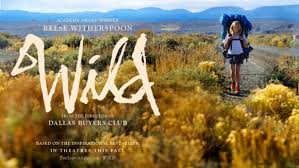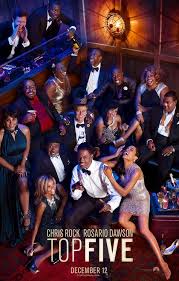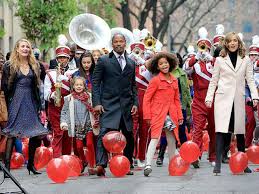Wild
Posted on December 4, 2014 at 5:58 pm
“If your Nerve, deny you—
Go above your Nerve—”
Cheryl Strayed (Reese Witherspoon) adds the name of the author, Emily Dickinson, to the quote she has inscribed in a journal for hikers kept at her entry point on the Pacific Coast Trail. And then she adds her own name as well. It is her own name in a very real sense as she was not born with it and it was not her husband’s name. It was a name she chose from a dictionary at the end of her marriage as the name she wanted to go on with, a name for going above her nerve.

Strayed was lost. Her mother Bobbi (a glowing Laura Dern), the “great love of (her) life,” died of cancer. Her husband Paul (“Newsroom’s” Thomas Sadoski) was loving and supportive but Strayed fell into a self-destructive death spiral, obliterating herself through “detached” sex with strangers and substance abuse that ultimately included shooting heroin. She and Paul recognized their divorce with matching tattoos to keep some part of the idea of permanence connecting them. And then, with nowhere else to go, she decided to take a walk, more than a thousand miles. It was a chance to reconnect with something she knew she loved to do and to get away from the bad choices she was making. The Chinese proverb says that the longest journey begins with a single step. Strayed wanted to take those steps between her old life and whatever was ahead, to begin to feel an un-obliterated life.
Her 60 pounds of equipment filled a backpack called The Monster. She did not practice putting up her tent or using her stove before she left. She was scared, and soon she was also hungry. She had brought the wrong fuel for her stove. A burly farmer driving a tractor gruffly agreed to give her a ride to some food, and then told her he was bringing her back to his house. She looked at him, trying to figure out if he was planning to attack her, hoping he was not. He was not. The farmer and his wife were kind and generous with her. She got the right fuel, and, a few stops later got some advice about getting rid of some of her load, down to burning each night the book pages she had finished reading. Plus, she didn’t really need all those condoms, did she?
Strayed’s book became an international-bestseller, so poetic and inspirational Oprah rebooted her Book Club to endorse it. Like other memoirs combining real and spiritual/emotional journeys, what makes it work is the narrator’s voice. This is as much an internal story as an external one. Screenwriter Nick Hornby (“High Fidelity”) and director Jean-Marc Vallée (“Dallas Buyer’s Club”) understand that this is not a travelogue, though there is some stunning scenery. It is about Strayed thinking back through her chaotic, messy life through the experience of putting one foot in front of the other on her way to a place called The Bridge of the Gods. As she thinks back on her life, we begin to understand the context for this trek at the same time that she does. As we expect from Hornby, there are some great song choices, too.
Strayed’s adventures and encounters along the way resonate with her memories. The farmer is not the only potential danger. The film understatedly but clearly shows how any woman in any sort of wild has to constantly calculate the threat level of the men she encounters. And, in a scene where Strayed comes across another hiker taking a bath in a lake, we get something we rarely see in films, a woman appraising, or maybe just appreciating, a male body. This is a character moment for Strayed, who as we see, has been too impulsive in sexual encounters. But here, she stands back and just savors the moment on its own, owning it without having to do anything about it. “I’m lonelier in my real life than I am out here,” she says.
Feeling your feelings can be painful. Strayed loses toenails and, at one point, her shoes. There are angry, raw patches of skin where The Monster digs into her. She thinks through painful memories of her mother’s illness, her father’s abuse. She remembers being inconsiderate of her mother, a woman who was thrilled to get a chance to go back to school, to think and question and learn. And for the first time, she begins to understand what her mother said about putting yourself in the line of beauty. Just because some things are terrible doesn’t mean everything is. “This has the power to fill you up again if you let it,” someone tells her.
Witherspoon gives a performance of quiet vulnerability and courage. In some ways, as producer as well as star, this was as daunting an undertaking for her as the hike was for Strayed. There was a real risk of making it a glamorized, soapy star vehicle. But as producer and actor, she gives this story the film it deserves.
Parents should know that this film includes explicit sexual references and situations and nudity, substance abuse, references to domestic abuse, and very strong language.
Family discussion: What do you think the quote means and why did Strayed use it to begin her hike? What does it mean to say that wounds come from the same source as power?
If you like this try: Strayed’s books, Wild: From Lost to Found on the Pacific Crest Trail, Torch
, and Tiny Beautiful Things: Advice on Love and Life from Dear Sugar
, and another 2014 film about a real-life woman on a long, long walk, Tracks.



